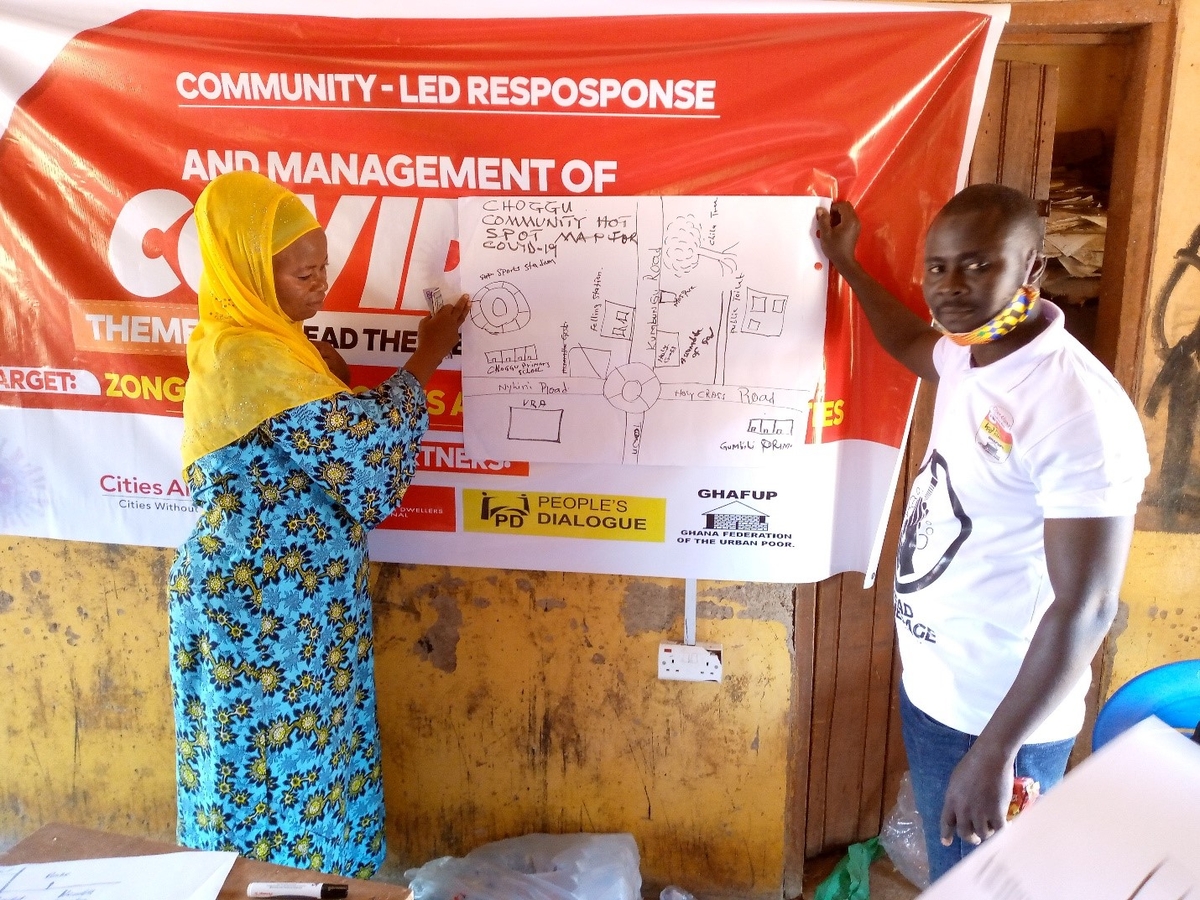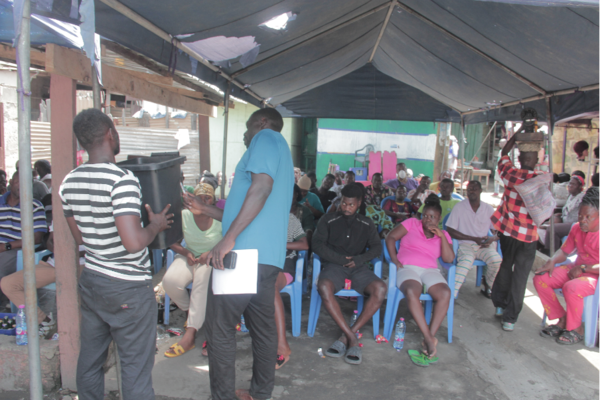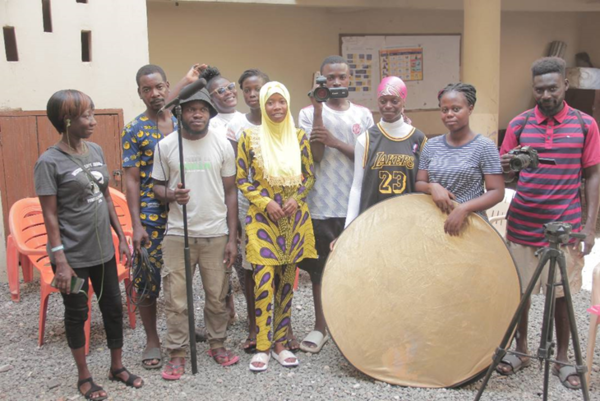- Who We Are
- How We Work
- Regional / Country Initiatives
- Legacy
- Core Themes
- Working Groups
- Portfolio & Results
- Newsroom
- Resources
Ghana: Inclusive Climate Action and Socio-Economic Empowerment

Project Overview
Ghana's urbanisation faces rapid population growth, inadequate infrastructure, and increasing economic inequality. Climate change impacts, such as flooding and air pollution in Accra, further exacerbate the situation. Operating within communities across Ghana, including the regions of Greater Accra, Western, Northern, and the Greater Accra Metropolitan Area (GAMA), this project aims to improve urban resilience and sustainable development.
The project seeks to empower marginalised segments, particularly women and youth, by providing them with essential skills and resources for sustainable livelihoods. By leveraging existing Planning and Action Frameworks at the city level and collaborating with local authorities, the initiative strengthens the institutional capacity of the Ghana SDI Alliance (People’s Dialogue on Human Settlements and Ghana Federation of the Urban Poor) to continue community-led urban interventions.
This project is part of the Building Resilience in Informal Settlements Programme, a partnership between CitiesAlliance and Slum Dwellers International (SDI), funded by the Swedish International Development Cooperation Agency (Sida), to support civil society organisations working in informal settlements.

Project Results: 2022-2024
The project has facilitated over 20 local-to-local learning exchanges among federation savings groups across the Accra Metropolis. These exchanges have not only increased federation knowledge and practices but also ensured leadership accountability to members. In total, 97 savings groups with 2,856 savers as well as 120 youth members were supported.
A comprehensive training program was conducted for street sweepers in Accra to promote a safer and cleaner environment, increase safety awareness among them, and enhance rapport with residents. 10 households were provided with improved water and sanitation.
Two sets of training sessions under solid waste management were organised: one on waste source sorting and separation at the household level, and another for waste collectors, particularly motor tricycle operators. 95 people benefitted from networking and training on climate change and biodiversity, while 60 people were supported to better adapt to the effects of climate change.
Through KYC TV, groups have gained advocacy and communication skills, focusing on public health, solid waste management, Covid-19, and evictions, resulting in improved living conditions and resilience. 6 national advocacy campaigns and 11 youth-led content creating initiatives were carried out.
Education on air pollution's negative impact was conducted in Amui Dzor, Shukura, and Agbogbloshie, leading to increased awareness, behaviour change, and advocacy for policy change. Data gathering has also led to 3 settlements being profiled and 9 settlement-level forums and campaigns taking place. Furthermore, 4 regional and national level federation meetings and 52 peer-to-peer learning exchanges, gathering 260 individuals, were held.

Enhanced Economic Livelihoods Increasing Sustainability in Ghana
The project demonstrated the importance of empowering vulnerable communities, particularly slum dwellers affected by demolitions in Greater Accra. Through community-led initiatives focused on savings, livelihood training and waste management, small food stalls could be transformed into successful businesses. With new skills in financial literacy and business management, residents increased their income, improved their families' nutrition and secured access to health and education for their children.
The success has inspired others in the community to adopt similar sustainable practices, such as waste separation and zero-waste initiatives, contributing to a cleaner, more resilient environment. 100 households were trained in waste sorting and composting. Waste has, for instance, been transformed into oil as a source of clean energy for cooking stoves. Multiple additional improvements have been achieved in terms of energy and water and sanitation. Solar energy has been installed for homes, public spaces and water pumps. Furthermore, existing communal and household toilets have been maintained and additional bio-fil toilets installed.
The federation played a critical role by mobilising residents, providing capacity-building training and advocating for policies that support affordable housing and sustainable urban development. The partnership with city authorities has been essential. The new Medium Term Development Plan emphasises the importance of integrating informal settlement dwellers and climate resilience into waste management practices. This achievement underscores the project's ability to break cycles of poverty, promote sustainability and enhance economic resilience, offering hope and empowerment to slum communities in the face of climate challenges.
Key Achievements: 2022-2024
- 97 savings groups and 2,856 savers supported
- 120 youth members mobilised and supported
- 10 households with improved water and sanitation
- 95 people supported through networking and training to address climate change or to conserve biodiversity
- 60 people supported to better adapt to the effects of climate change
- 3 settlements profiled
- 9 settlement level information forums or campaigns
- 6 city or national level advocacy campaigns conducted
- 11 content creating initiatives involving youth
- 4 regional or national level federation leadership meetings were held
- 52 peer-to-peer learning exchanges with 260 individuals
